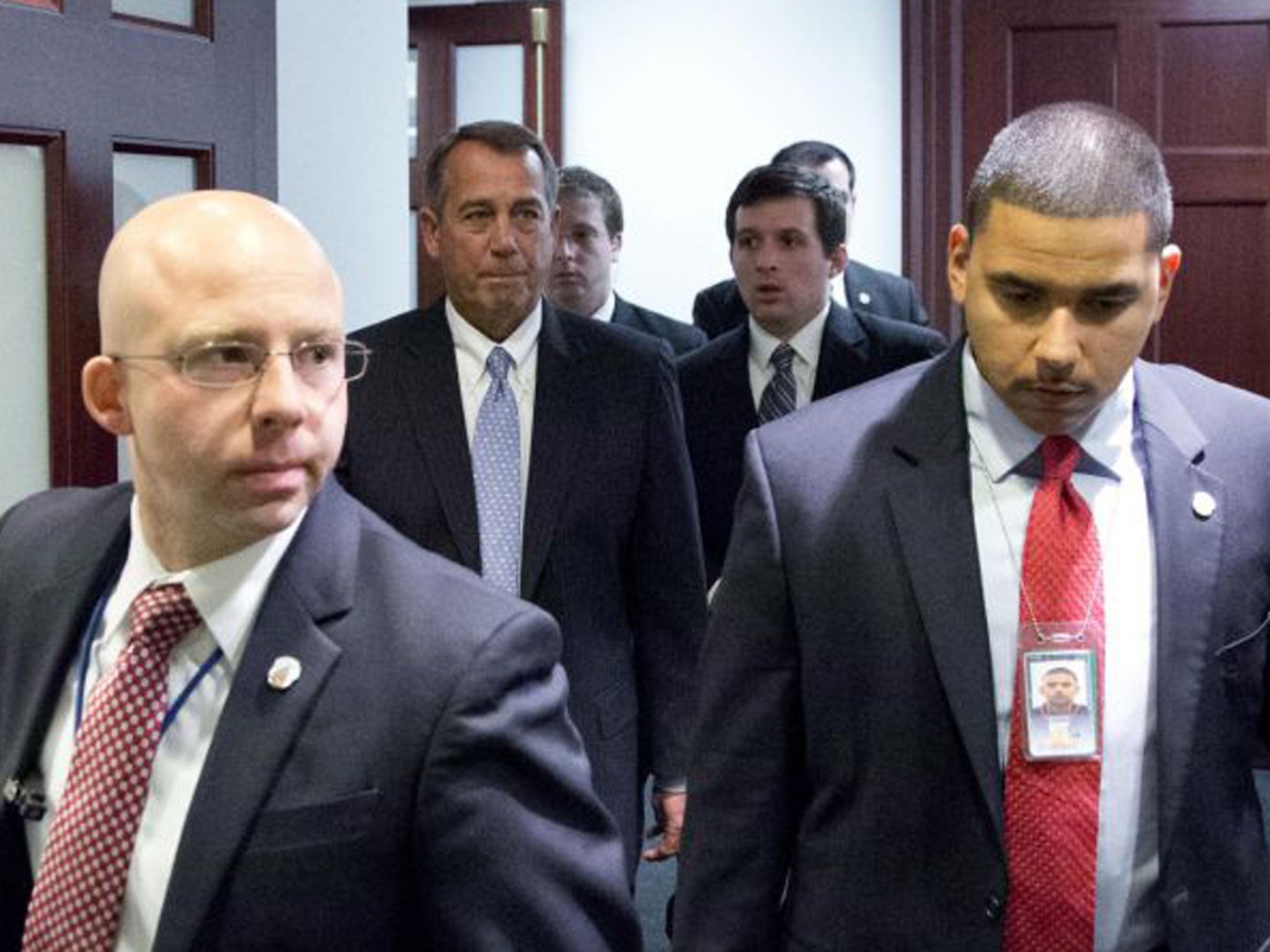'How we get there, God only knows': Vote pushes US closer to cliff’s edge
Time running out to avert damaging spending cuts and tax rises as Republicans reject Boehner’s ‘Plan B’

The White House was last night struggling to pick up the pieces after John Boehner, the top Republican, conceded that his own strategy for reaching a deal to avoid the automatic triggering of serial tax increases and spending cuts on 1 January, the fiscal cliff, had fallen apart.
As an unusual sense of chaos descended on Washington just days before Christmas, Mr Boehner, the Speaker of the House, gamely voiced confidence that something would eventually be agreed aimed at closing the gap between what that the US continues to spend every year versus what it collects in tax revenues.
But with a barely reassuring sigh, he instantly added: "How we get there, God only knows". Time is running out with only 10 days in the year remaining. Mr Boehner told his members to go home for Christmas but to be on 48-hour notice to return to the Washington to vote if some new package takes shape.
Financial and stock markets around the world reacted negatively to the foul-up as concern peaked again that the tax increases and spending cuts worth more than half a trillion dollars may now be inevitable.
The slow grind of the fiscal cliff talks exploded into high drama on Capitol Hill late on Thursday night when a nearly tearful Mr Boehner was forced to cancel a vote on a package he had called his "Plan B" after realising that he could not even muster enough support for it from within his own increasingly fractured ranks.
The revolt, staged by his conservative and Tea Party brethren, was a rare humiliation for Mr Boehner, who could now face a challenge when he seeks re-election to his post as speaker next month. Mr Boehner had begun the week saying he was drafting a back-up bill – his Plan B – in case his continuing talks with President Barack Obama hit the buffers. It included a provision to extend existing tax cuts for most Americans but not for households earning $1m or more.
It was always partly about political showmanship and garnering leverage over the White House since it would never have won support in the Senate. That he not he would not be able to pass it in the House was not part of his calculation, however.
Before the Plan-B stratagems got in the way there was actually some hope of Messrs Boehner and Obama striking a package with a balance of spending cuts, notably on social programmes as well as the military, and tax increases that both sides could accept, if reluctantly. Mr Obama wants to raise taxes by about $20bn more a year than Mr Boehner does, a tiny amount in the greater scheme of things.
Mr Boehner was undone in part because a significant number of his party remain ideologically opposed to any kind of tax increase and also because of an angry mood among his Tea Party members who accuse him of trying to muzzle them since the November elections including by kicking them off committees.
But by sinking their boss they have probably ensured that the White House will now seek the help of the Senate to craft a different deal that they will then try to get through the House with support of all Democrats and a number of moderate Republicans. That version will surely seek to expose families earning much less than $1m a year to higher taxes. Mr Obama has suggested a threshold of $400,000.
The President last night called for a compromise solution and said he was "ready and willing" to get a package agreed that would protect middle-class Americans from tax increases. He said no one gets 100 per cent of what they want and there are "real consequences" to how Congress deals with the fiscal cliff.
In numbers:
$1.2trn Spending cuts that will automatically come in on 1 January if no deal is agreed equivalent to 8.6% of GDP
$500bn Cuts that would be imposed on the US defence budget
$3,500 Average rise in taxation for every household if the cliff is not averted
Subscribe to Independent Premium to bookmark this article
Want to bookmark your favourite articles and stories to read or reference later? Start your Independent Premium subscription today.

Join our commenting forum
Join thought-provoking conversations, follow other Independent readers and see their replies